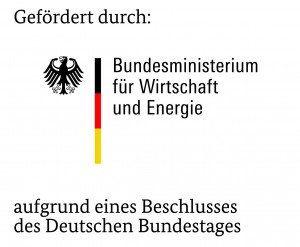In February 2017, PRO-OPT was presented in the context of the Big Data Summit in Hanau, Germany. The topic was “Analysis of cross-company Big Data business potentials – Experiences in the automotive industry”, and the contents were as follows:
Big Data (BD) projects frequently do not fail for reasons of technical implementability. Rather, they fail because they are not aligned with the organization’s strategic goals on the one hand, and cannot be realized in the context of its business and operative constraints on the other hand. This problem is even more pronounced in Smart Ecosystems, where BD solutions must be aligned with company-specific as well as with cross-company goals. This is why traditional data-driven strategies based on procuring all available data and then checking them in an explorative manner to extract business-relevant knowledge usually do not work in Smart Ecosystems. Traditional data-driven strategies do not focus sufficiently on concrete business goals and strategies.
These problems are addressed by performing a goal-oriented analysis of the BD business potential, where companies receive support in deriving data-based use cases (UC) from their strategic goals and business needs as well as in designing their own BD solutions. Prior to being deployed in an operative environment, these UCs are incrementally tested and adapted in a lab context.
In this presentation, we explain the implementation of the BD Potential Analysis in the context of the project PRO-OPT, whose aims include the establishment of a collaborative supply chain in the automotive industry and digitization of production. In this context, analyzing the interactions among data related to products, equipment, logistics, infrastructure, and processes is considered key for the analysis, validation, and optimization of production processes. If we just look at the production environment of vehicle electronics at AUDI, the data volume there is estimated to be 100 TB per year. BD solutions are necessary, in particular, to detect anomalies and weaknesses early in order to make production processes more stable, more efficient, more transparent, and more controllable.
The BD Potential Analysis does, for example, support AUDI in efficiently deriving relevant data-based UCs and goal-oriented BD solutions, which help to identify the relationships among production process indicators and thus lead to the determination of Key Performance Indicators based on which production processes can be optimized and made transparent and measurable. Compared to traditional data-driven strategies, AUDI has been able to identify relevant UCs and suitable BD solutions faster with the help of the BD Potential Analysis. Along with the number of relevant UCs, the network of valuable data (i.e., information with added business value) is also growing at AUDI.
Presentation: 1130 P3 AutoAvia Liliana Guzmán FhG IESE O Lepp AUDI_BDS17


